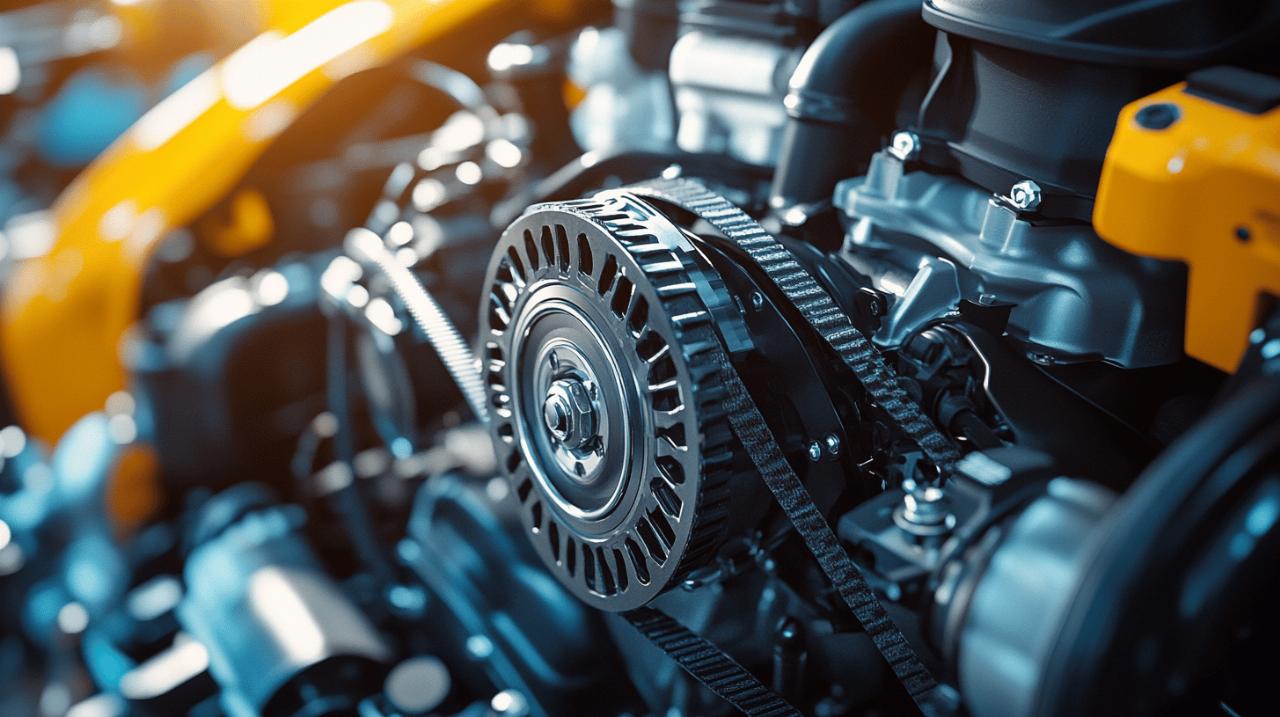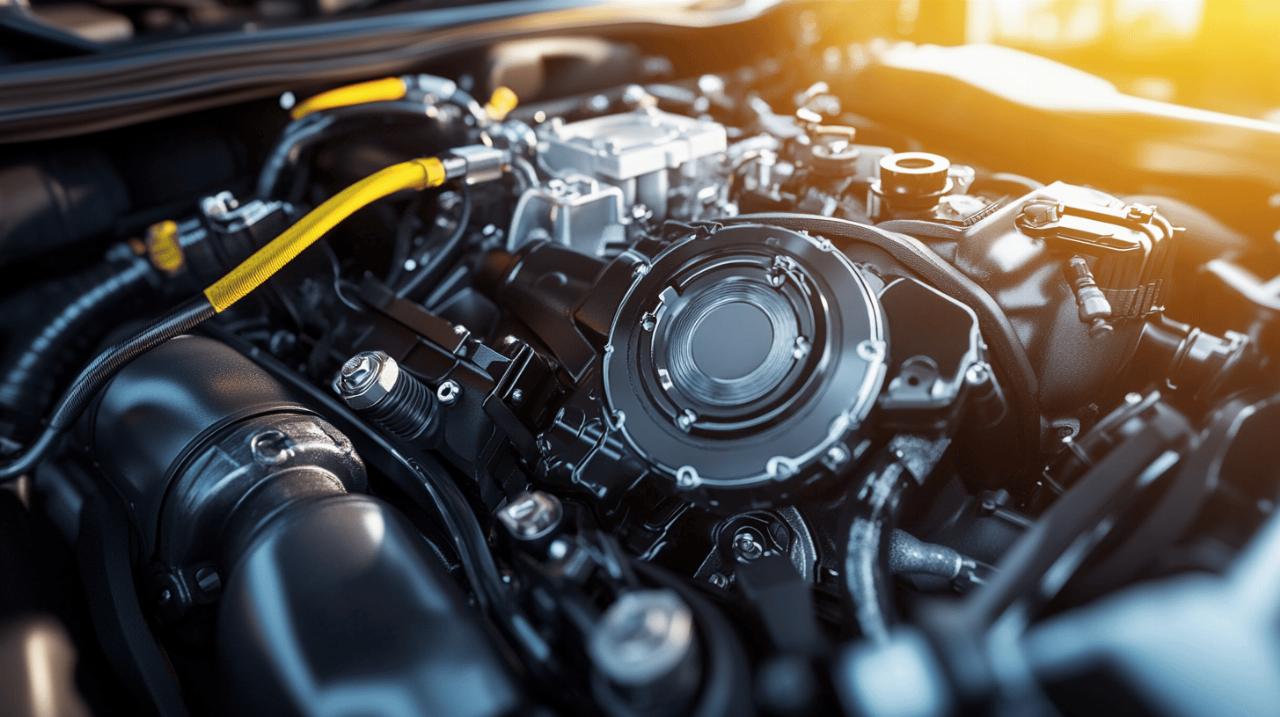
Regular vehicle maintenance is not just about preventing breakdowns; it's about ensuring your car delivers optimal performance throughout its lifetime. By understanding and implementing basic maintenance routines, you can significantly extend your vehicle's lifespan while maintaining safety and efficiency on the road. This comprehensive guide will walk you through the essentials of automotive care that every driver should know.
Essential routine maintenance tasks
Establishing a consistent maintenance schedule is the cornerstone of responsible vehicle ownership. Auto Health begins with regular attention to fundamental components that keep your car running smoothly. Without proper maintenance, even minor issues can escalate into costly repairs, compromising both safety and performance.
Regular oil changes and fluid checks
Engine oil serves as the lifeblood of your vehicle, providing crucial lubrication to moving parts whilst removing heat and contaminants. Most mechanics recommend changing your oil every 5,000-7,500 miles, though this may vary based on your specific vehicle and driving conditions. A recent survey revealed concerning statistics about oil change habits, with over 26% of drivers admitting they hadn't changed their oil in over a year, and alarmingly, 20% reporting they've never changed it at all. Beyond oil, regular checks of transmission fluid, brake fluid, power steering fluid, and coolant are essential for maintaining optimal performance. The industry acronym FORCES—Fuel, Oil, Rubber, Coolant, Electrics, Screen wash—provides a helpful reminder for these vital checks.
Proper tyre care and pressure monitoring
Tyres represent your only contact with the road, making their maintenance critical for both safety and fuel efficiency. Whilst the legal minimum tread depth in the UK is 1.6mm, experts recommend maintaining at least 3mm of tread during winter months for improved grip in adverse conditions. Regular rotation every 5,000-7,500 miles ensures even wear patterns and extended tyre life. Pressure checks should be conducted monthly, as both underinflated and overinflated tyres can compromise handling, braking distances, and fuel economy. Additionally, examining tyres for bulges, cuts, or unusual wear patterns can help identify alignment or suspension issues before they cause more significant problems.
Understanding vehicle warning systems
Modern vehicles are equipped with sophisticated diagnostic systems designed to alert drivers to potential issues before they become critical. Understanding these warning systems can help you address problems promptly, potentially saving thousands in repair costs and preventing dangerous situations on the road.
Interpreting dashboard warning lights
Dashboard warning indicators are your vehicle's way of communicating potential problems. Each symbol corresponds to specific systems or components, ranging from minor maintenance reminders to critical safety alerts. The check engine light, perhaps the most notorious, can indicate numerous issues from a loose fuel cap to serious engine malfunctions. Brake system warnings, battery alerts, oil pressure indicators, and temperature warnings should never be ignored, as they often signal problems that could lead to breakdowns or further damage if left unattended. Vehicle manuals provide detailed explanations of each warning light, helping owners understand the urgency and appropriate response for each indicator.
When to seek professional assistance
While many maintenance tasks can be performed by owners, certain symptoms warrant professional attention. Unusual noises, particularly grinding, squealing, or knocking sounds, often indicate component wear or failure that requires expert diagnosis. Performance issues such as rough idling, poor acceleration, or decreased fuel efficiency can signal problems with the fuel system, ignition components, or sensors. Fluid leaks, especially those of bright colours or oily consistency, generally require professional inspection to identify the source and severity. Specialist garages like John's Automotive Care, which maintains locations in La Mesa, San Diego and El Cajon, offer comprehensive diagnostic services for these more complex issues. Their impressive ratings—4.9 stars from over 800 Google reviews—suggest strong customer satisfaction with their professional services.
Engine care fundamentals
The engine serves as the heart of your vehicle, making its maintenance paramount for overall performance and longevity. Understanding basic engine care can help prevent costly repairs and ensure optimal efficiency throughout your vehicle's lifespan.
Air filter replacement and spark plug maintenance
The air filter plays a crucial role in preventing contaminants from entering your engine. Most mechanics recommend replacing it every 12,000-15,000 miles or annually, whichever comes first. A clogged filter restricts airflow, reducing performance and potentially increasing fuel consumption. Spark plugs, which ignite the fuel-air mixture in petrol engines, typically require replacement every 30,000 miles. Signs of failing spark plugs include rough idling, difficulty starting, and poor acceleration. For diesel engines, glow plugs serve a similar function during cold starts. A survey showed that while 65% of diesel owners had replaced their glow plugs recently, nearly 9% were unfamiliar with what glow plugs actually do, highlighting the need for greater automotive education among drivers.
Timing belt service and battery health
The timing belt synchronises the rotation of the crankshaft and camshaft, ensuring valves open and close at the proper times. Replacement intervals typically range from 60,000-100,000 miles, depending on the manufacturer. Failure to replace a worn timing belt can result in catastrophic engine damage in interference engines. Battery health is equally important, particularly as vehicles become increasingly electronic. Most automotive batteries last 3-5 years, though extreme temperatures can shorten their lifespan. Regular checks for corrosion around terminals and ensuring tight connections can prevent starting issues. For electric vehicles, battery health monitoring has become increasingly important, with companies like Cambria now including battery health checks for all used EVs they sell.
Seasonal maintenance considerations
Weather conditions significantly impact vehicle performance and longevity, making seasonal maintenance adjustments essential for optimal operation year-round. Preparing your vehicle for extreme temperatures can prevent common seasonal issues while ensuring safety in changing road conditions.
Winter preparation for your vehicle
Winter presents unique challenges for vehicles, from cold starting difficulties to reduced battery performance. Before temperatures drop, antifreeze levels should be checked and adjusted to prevent freezing in the cooling system. Battery capacity naturally decreases in cold weather, making it advisable to have your battery tested if it's more than three years old. Tyre considerations become particularly important, with winter tyres or all-season tyres with adequate tread depth recommended for improved traction on icy or snow-covered roads. Visibility is another crucial factor, requiring functional wipers, properly filled washer fluid with antifreeze properties, and clear headlights. A winter emergency kit containing items like blankets, torch, ice scraper, and jump leads can provide peace of mind during the colder months.
Summer heat protection measures
High temperatures create different challenges for vehicles, particularly for cooling systems and air conditioning. Coolant levels and condition should be checked before hot weather arrives, with replacement recommended every 30,000-50,000 miles. Air conditioning systems require proper maintenance to ensure comfortable cabin temperatures during summer driving. This includes checking refrigerant levels and cleaning or replacing cabin air filters. Tyre pressure requires more frequent monitoring during hot weather, as heat causes air to expand, potentially leading to overinflation. Additionally, battery fluid can evaporate more quickly in high temperatures, making regular battery checks important during summer months. Services like RH Auto Engineering offer vehicle air conditioning maintenance, ensuring systems function efficiently during hot weather.
Long-term benefits of regular maintenance
Consistent vehicle maintenance delivers benefits far beyond immediate performance improvements. The cumulative effect of proper care manifests in significant long-term advantages that impact both your driving experience and financial considerations.
Extending vehicle lifespan and reliability
Regular maintenance significantly extends your vehicle's serviceable life, with well-maintained cars routinely exceeding 200,000 miles. Following manufacturer-recommended service intervals prevents the cascade effect where minor issues develop into major mechanical failures. This preventative approach not only reduces the frequency of repairs but also minimises the severity and cost when service is required. Reliability improvements directly impact daily life, reducing stress associated with unexpected breakdowns and providing peace of mind during essential travel. The data supports this approach—surveys indicate that vehicles receiving regular professional maintenance experience fewer roadside emergencies and unplanned repairs compared to those maintained sporadically or reactively.
Maintaining resale value through proper care
Comprehensive maintenance records significantly enhance resale value when it's time to sell or trade your vehicle. Prospective buyers are willing to pay premium prices for vehicles with documented service histories, recognising the reduced risk of hidden problems. Beyond paperwork, visible indicators of good maintenance—such as clean engine compartments, properly functioning electronics, and consistent wear patterns on consumable components—signal to buyers that the vehicle has received proper care. This attention to detail can translate to thousands of pounds in retained value. Additionally, proper maintenance preserves the aesthetic qualities of your vehicle, with regular cleaning and protection of paint, upholstery, and trim preventing premature aging and maintaining the vehicle's appeal to future owners.



